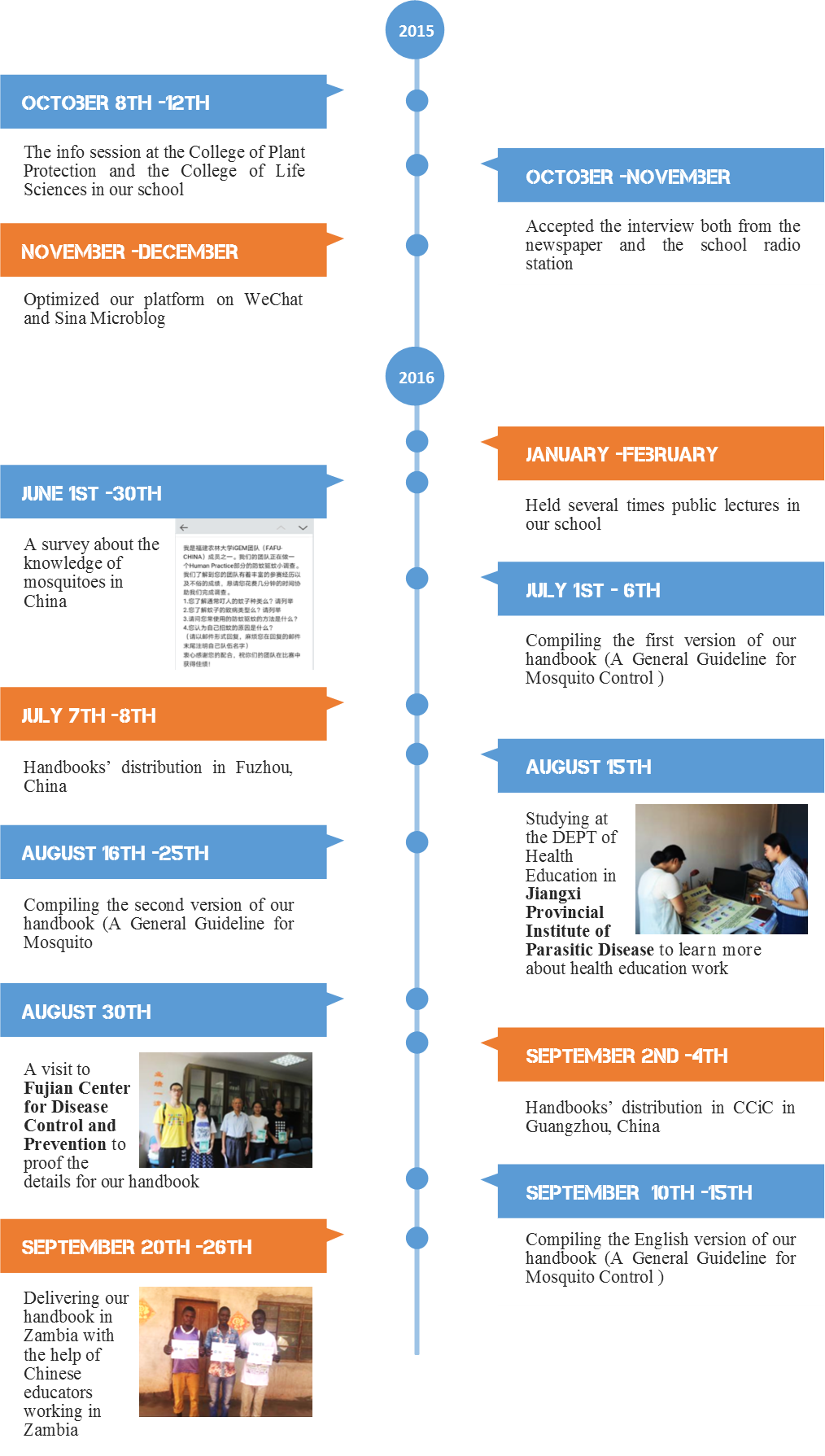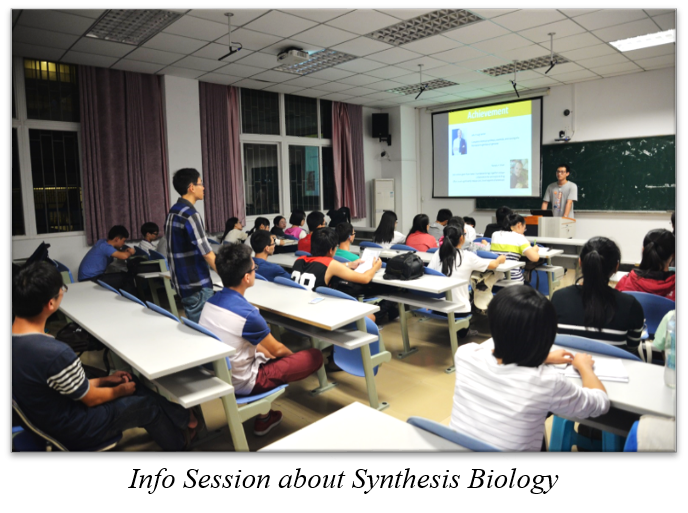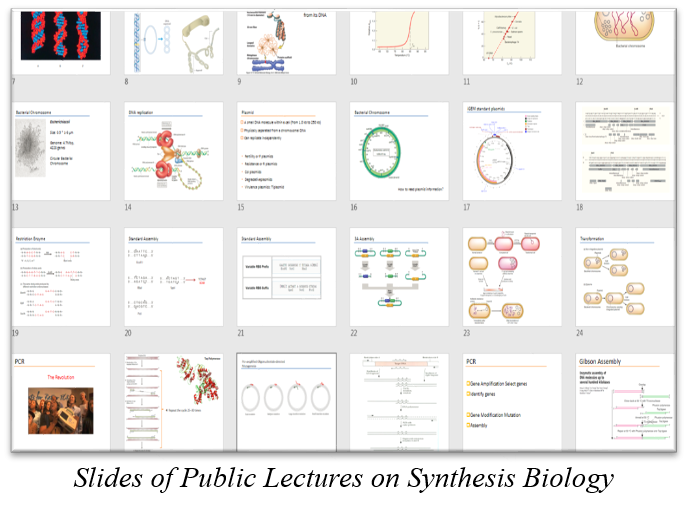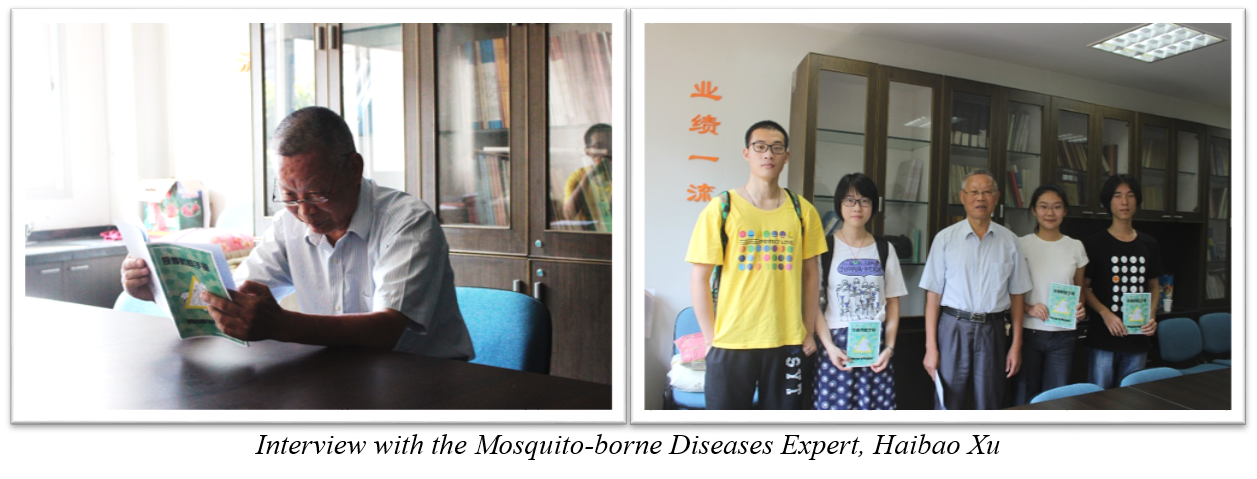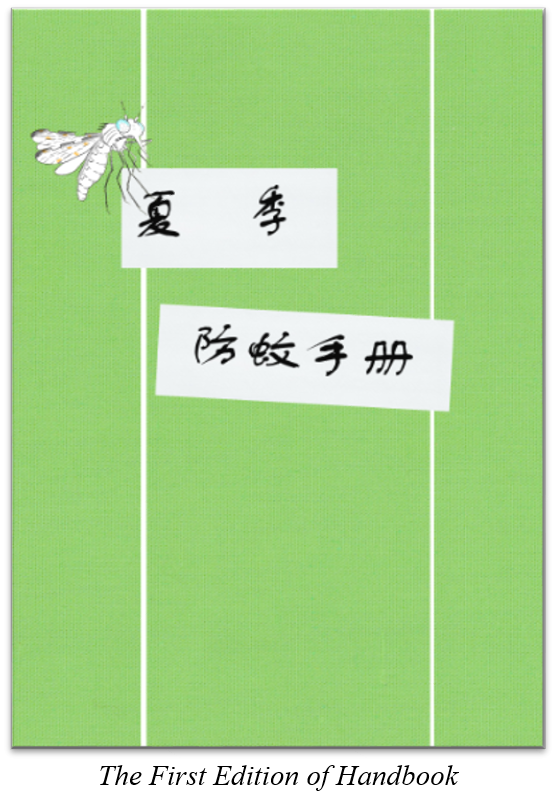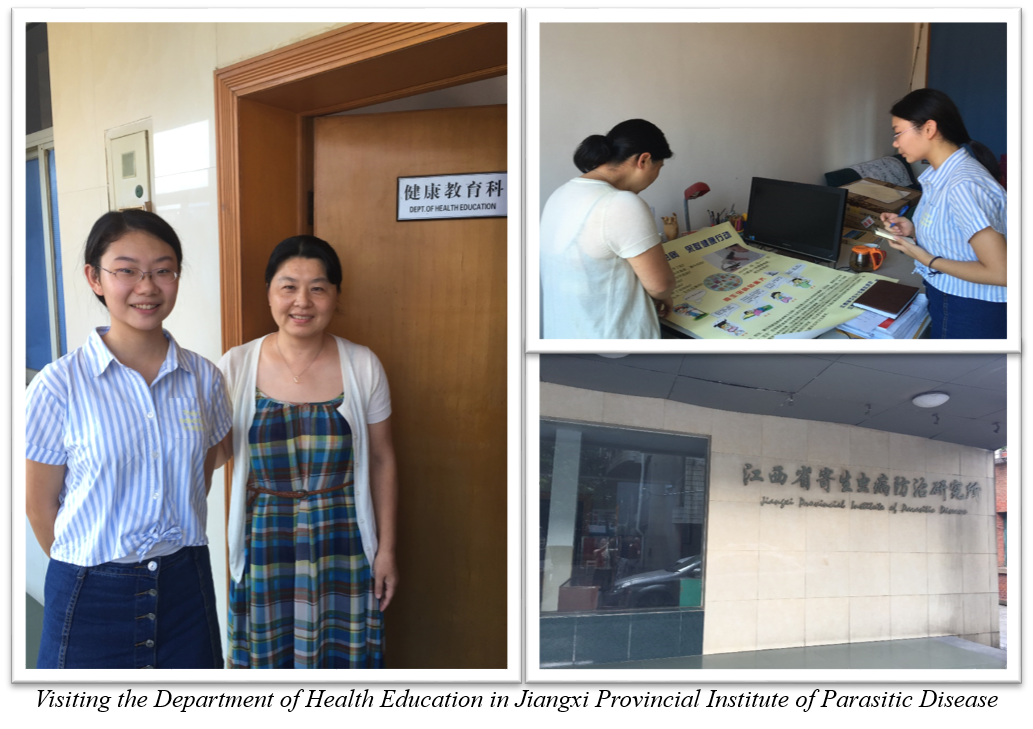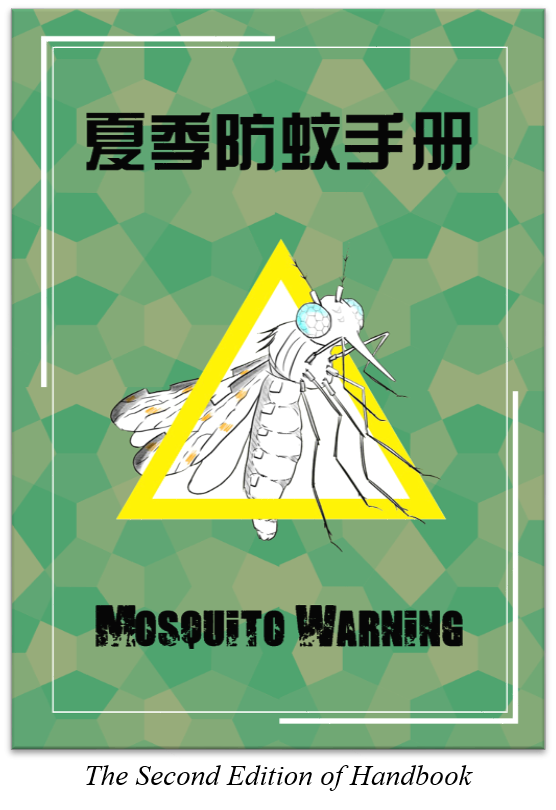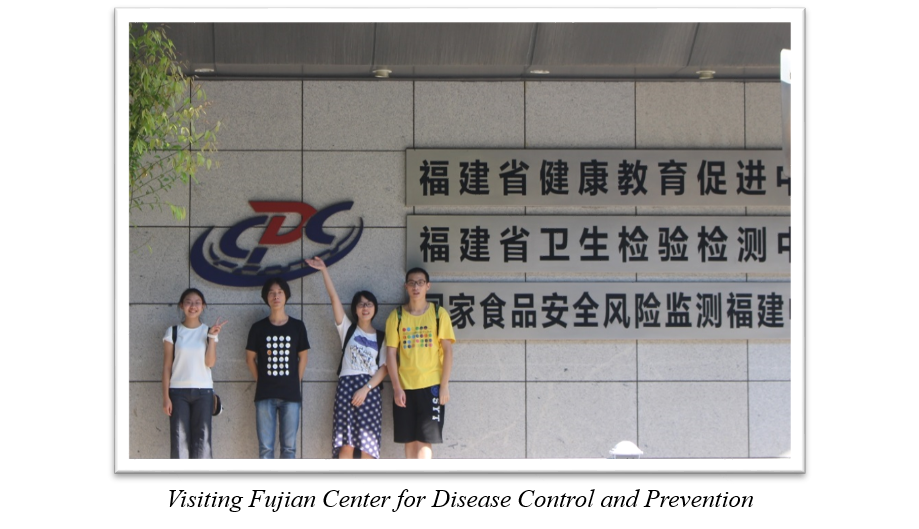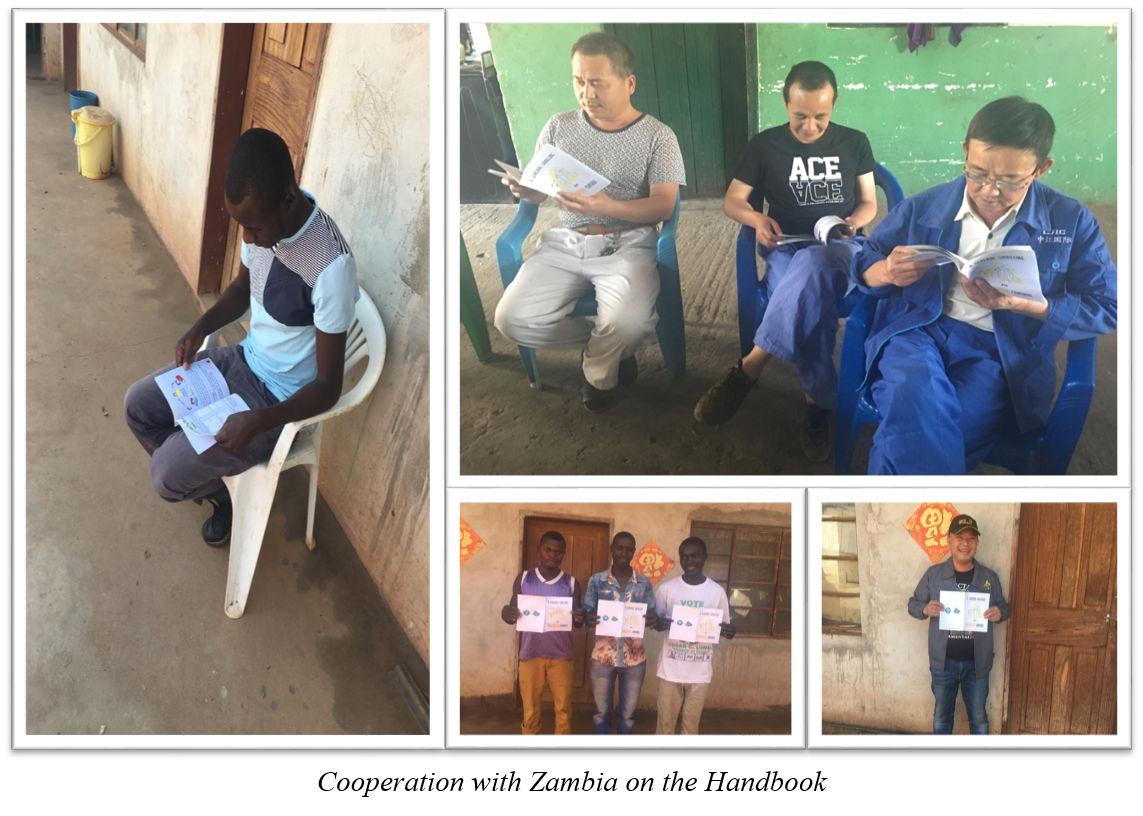Contents
- 1 Human Practice
- 2 Human Practice Activities in 2015
- 3 Human Practice Activities in 2016
- 3.1 1.The Overview of Human Practice in 2016
- 3.2 2.The Survey about Mosquitoes
- 3.3 3.The First Edition of the Handbook
- 3.4 4.Visiting to Jiangxi Provincial Institute of Parasitic Disease
- 3.5 5.The Second Edition of the Handbook
- 3.6 6.Interview in Fujian Center for Disease Control and Prevention
- 3.7 7.Cooperation with Zambia on the Handbook
Human Practice
From 2015 to 2016, we decided various human practice activities. We introduced synthesis biology and iGEM to students in university. Except that, we made survey about mosquitoes among public, visiting Center for Disease Control, interview experts in the related filed. Meanwhile, we attended the CCiC on SYSU campus. We will introduce our Human Practice project in the timeline.
Human Practice Activities in 2015
1.The Info Session about Synthesis Biology
October 2015, our team held the info session at the College of Plant Protection and the College of Life Sciences in our school to share the information on the synthetic biology with lots of students under the help of school. We introduced many classical project such as quorum sensing, riboswitch and so on. These info sessions really encouraged lots of students to join us. With these efforts, more and more students learn about the synthetic biology, and most of them would like to take part in the iGEM competition.
2.The Interview from the Media
From October to November, our team accepted the interview both from the newspaper and the school radio station. As the first team joined the iGEM in Fuzhou, the reports of our team’s story not only encourage the students in Fujian Agriculture and Forestry University, but also motivate many students in other schools. The iGEM and the synthetic biology are known by the public gradually.
3.Social Media Platform
In order to let more people to know us as well as getting in touch with us, we optimized our platform on WeChat and Sina Microblog. We offered the service of answering the questions on the iGEM and the synthetic biology from our school’s students and sent the news of the Frontier Science Program sometimes. The followers of our platform can acquire a lot of useful information about the synthetic biology and iGEM from us.
4.Public Lectures on Synthesis Biology
During the winter holiday at the beginning of 2016, our team held several times public lectures in our school. All the students in our school can come to have these lectures for free. In the class, we talked about the development of Synthetic Biology, basics for Bioinformatics, methods in Molecular Biology and so on. The aim of the public lectures is to improve students’ interests on the biology.
Human Practice Activities in 2016
1.The Overview of Human Practice in 2016
April 2016, FAFU-CHINA began preparations for this year's program. Our topic focuses on controlling the spread and prevalence of mosquito-borne diseases from transmission source, since mosquito-borne diseases like Zika virus return to public view again.
These diseases have never vanished and always haunt us as an evil spirit. From thousands years ago, mosquito-borne diseases have attacked human beings more than once locking us up and preventing us moving forward. Therefore, we all hope one day we can break its bondage. We gradually realize: “Whoever we are, we should do something to stop it.”
World Health Organization has once reported: “mosquito-borne disease is a huge scientific problem. Meanwhile, it is a though public health problem.” With the deepening of the experimental process and the increase of reading volumes, we firmly believe what WHO reported. We decide to explore the way to alleviating mosquito-borne diseases transmission from the point of science and education and to set it as the main part of HUMAN PRACTICE program.
2.The Survey about Mosquitoes
May 2016, we distributed questionnaires about mosquito-borne diseases in China at first. From the statistics and analysis of the result, we found many people did not know basic mosquitoes' knowledge, such as mosquito species, mosquito distribution area. This result led to the idea of producing a handbook about protection against mosquitoes, which covers basic knowledge of mosquito-borne diseases and demonstrates a certain amount of frontier anti-mosquitoes technology. It becomes our first step of handbook program.
3.The First Edition of the Handbook
At the beginning of July, we completed the first edition of the handbook. In the first edition of the handbook, we compiled the collected literature and arranged relevant knowledge on mosquito species, distribution areas, disease transmission, protection against mosquito, and rumor clarification. However, after we released the handbooks, we did not gain the expected response.
4.Visiting to Jiangxi Provincial Institute of Parasitic Disease
On August, we got a chance to study at department of Health Education in Jiangxi Provincial Institute of Parasitic Disease for half a day. At here, we grasped a comprehensive understanding of the purpose of health education and working procedures, learned the enthusiasm for health education career, and gained the methods of health education as well as guiding concept. In the half a day, we have obtained too much, and more importantly, we recognized the core of human practice program, which is enthusiasm.
5.The Second Edition of the Handbook
Being inspired, we came back to our lab and carried out the second edition of handbook immediately. What does the public want to know? What can truly change their life? Only by taking these questions into consideration, can we produce meaningful handbooks.
At the end of August, we made a lot of adjustments: in the part of mosquito distribution in the second edition, we added a clearer map of China's regional distribution; the handbook turned to focus on pathogenesis, transmission, and prevention measures of mosquito-borne diseases; besides, we adapted the procedures of treatment to affected parts into cartoon, so that the public can read and understand it easily. Our second edition gained recognition in the promotion. Although there are still some problems, it is already a great leap compared to the first one.
6.Interview in Fujian Center for Disease Control and Prevention
August 31st, in order to ensure the academic rigor of the handbook, we went to Fujian Center for Disease Control and Prevention and invited mosquito-borne diseases expert, Haibao Xu, to revise the content. Through the revising and communication on the handbook, we deepened our understanding that prevention and treatment of mosquito-borne diseases can not be achieved by a small group of people in a few days; it is a long journey, a huge project that involves whole human beings.
7.Cooperation with Zambia on the Handbook
September 2016, occasionally, we noticed a message from Zambia on social network. The message was sent by a Chinese educator working there. The message described this educator’s experience of infecting malaria. Although it was a simple description, it left a deep impression on us. When Zika virus becomes the focal point of the world, malaria, the mosquito-borne diseases which have tortured human beings for hundreds of years, is still alive, even though we have already developed and promoted antimalarial drugs like Artemisinin. This led us to raise more questions: apart from accelerating scientific researches and enhancing medical care, what can we do for our people? How can we convey our common expectations to the people in other countries?
Our answer is to make an English version of the handbook. Again, we made some adjustments according to the conditions overseas. We presented useful information in a more concise and clearer way, focused on the prevention of mosquito-borne diseases and deleted mosquito eradication methods that can not be applied locally. In fact, during this process, we were not sure whether these handbooks could actually change people's lives in Zambia, but we just wanted to make it. As the people also living in mosquito-borne diseases endemic area, we hope we can do something for the people in African continent thousands miles away.
After we finished the English handbook, we managed to get in touch with the Chinese educator in Zambia on social network, explained our project to him and showed our willing to cooperate. We expressed that we wanted to send our English handbooks to the educational institution where he was working and hoped he can help us to distribute these handbooks to the people there. This is a brave attempt to make a transnational cooperation. We could not predict the result of it, but we were looking forward to it.
Receiving the response that they were glad to cooperate with us, the whole team was so inspiring: carrying our dream and hope, the handbooks finally could travel across oceans to a wonderful land where we could not reach to. However, we also felt nervous. Would the mosquito eradication methods be useful there? Could these methods be accepted? With the curiosity of those questions, we waited for the response restlessly.
About a week later, we received the e-mail from Zambia. "Thank you for your efforts," wrote in the e-mail. Watching at the photos and short videos from Zambia in the e-mail, our hearts were full of appreciation.
From the email, we acknowledged that the content of the English handbooks could only be partly understood by local people. And some methods were not very effective because of different environment. Still, they did not decline us for the imperfect. Through this transnational cooperation, we communicated with and were moved by each other. The imperfect drives us to move on to our goal: striving to make a better future, devoting ourselves to science, and encouraging all of us to open “the window”.
By doing these, we understood the meaning of Science and Education and the essence of Human Practice, the enthusiasm. For scientists, it is the perseverance of keeping pushing the “window of unknown world” and the devotion to struggle for a better future. For us, the Human Practice workers, it is the spirit of passing scientists’ everlasting enthusiasm to the public and guiding people to unlock the “window”. And at the moment of receiving the email from Zambia, we were so excited that our heart was beating so fast. We realized we were not just trying to open the window of science; we were also trying to open other people’s hearts. Wherever we are, China or Zambia, we share the same world.
We affirmed our belief: insignificant as we are, we should never give up any chances which may make differences; we should keep striving to make a better and brighter future for the world.


